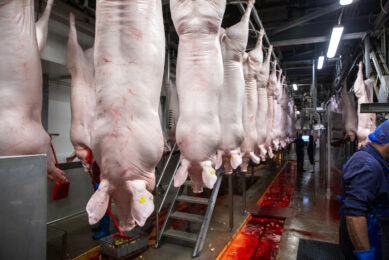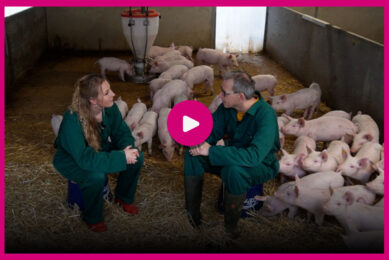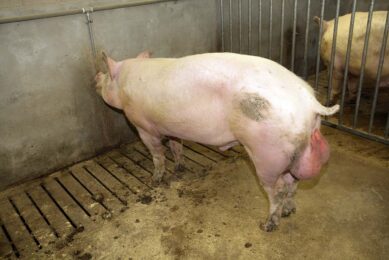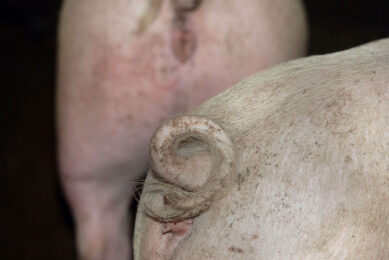AVMA: Policy on swine castration, tail docking, teeth clipping
The American Veterinary Medical Association’s (AVMA) Executive Board recently approved proposals to replace the AVMA policy on swine castration, tail docking, and teeth clipping with two new policies.
Pig castration
Castration of swine can help control aggressive behaviour and improve the palatability of pork. Current US swine markets do not allow for mass marketing of uncastrated male pigs. Castration is a painful surgical procedure and should be performed as early as possible, preferably by 14 days of age. Surgical wounds should be healed prior to weaning. After 14 days of age, swine should be castrated using analgesia and/ or anaesthesia.
The AVMA recommends the use of procedures and practices that reduce or eliminate pain, including the use of approved or Amducapermissible clinically effective medications whenever possible. The AVMA encourages development and implementation of practical analgesic and anesthetic protocols for, and alternatives to, swine castration.
Tail docking and teeth clipping of swine
Tail docking is performed to prevent tail biting and cannibalism among pigs. Tail docking should be performed as early as possible, but by 14 days of age.
Teeth clipping is performed as necessary to prevent trauma to the sow’s teats and snouts of other piglets (due to the presence of sharp canine teeth at birth). Farms may minimise the need for clipping piglets’ teeth altogether by cross fostering between litters.
The AVMA recommends the use of procedures and practices that reduce or eliminate pain, including the use of approved or Amduca-permissible clinically effective medications whenever possible.
Related websites:
• American Veterinary Medical Association (AVMA)











